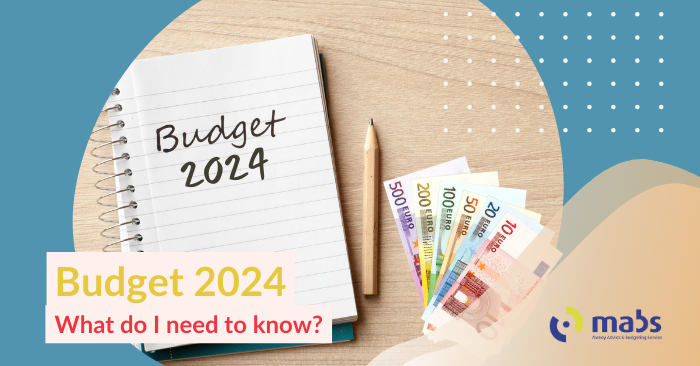Budget 2024 – What do I need to know?

On Tuesday, 10 October, the national Irish budget for 2024 was unveiled. The €12.3 billion budget package is made up of €2.3 billion in once-off cost-of-living measures to be paid this year and early next year. And €10 billion in budgetary measures due to come into effect throughout 2024.
However, what does this mean for you?
In this blog, we answer the top 5 questions you’ve been asking since Budget 2024 was released.
Mortgage Interest Relief – am I eligible for relief?
You must have had an outstanding mortgage balance between €80,000 and €500,000 on your home on 31 December 2022 to be eligible. Your home might be referred to as your Principle Primary Residence (PPR) in criteria documentation.
The relief will be available on the increased interest you paid in 2023 compared to 2022. It will be applied at the standard tax rate of 20% and it is capped at €1,250 per household.
You can read more about the mortgage interest tax relief in this Bonkers.ie explainer.
Energy credits – how much are they for? And, when will they come off my bills?
All residential electricity customers will get €450 off their electricity bills over the winter months. As in 2022, the energy credit will be paid in 3 instalments of €150:
- The first credit will be applied from 1 December 2023.
- The second credit will be applied from 1 January 2024.
- The third credit will be applied from 1 March 2024.
*Please note the credits will be applied to the next billing period that falls after these dates so you may not see it on your electricity bill straight away.
A €300 once-off lump sum will also be paid to people receiving Fuel Allowance the week starting 20 November 2023.
Are you finding it hard to make ends meet after paying your bills? Contact our helpline or local office to get advice.
Third-level fee reductions – am I eligible and when will this occur?
Student contribution
The student contribution fee will be reduced by €1,000 in the 2023/2024 academic year for students who qualify for the Free Fees Scheme as a “once off” measure.
This comes alongside a permanent reduction of €500 to families on incomes between €62,000 and €100,000. For eligible students, the student contribution fee will be halved to €1,500 for the 2023/2024 academic year.
From September 2024, the student contribution fee will be abolished for all incomes under €55,924.
If you or your child has just started college, check out our blog on Going to College – Settling In for helpful tips on how to get set up for a successful academic year.
Fuel and Energy excise and VAT rate reductions – how much and until when?
The temporary excise rate reductions on auto diesel, petrol and marked gas oil due to expire on 31 October 2023 will be extended until 31 March 2024.
On 1 April 2024, 4 cent, 3 cent, and 1.7 cent will be added to petrol, diesel and marked gas oil (delayed until 1 August 2024), respectively.
The reduced 9% VAT rate for gas and electricity will be extended for 12 months to 31 October 2024.
Check out our blog on how to reduce your utility costs for tips on saving on your bills.
Renters Credit – how to apply?
The Rent Tax Credit for people paying for private rentals will be increased from €500 to €750 a year from 2024.
The Rent Tax Credit will be extended to parents who pay for rented accommodation for their student children under the Rent-a-room scheme and for ‘digs’. This will be backdated to include the 2022 and 2023 tax years (€500 credit for each year).
If you are renting or thinking about moving out, check out our blog on renting for the first time.
If you have any questions or would like to speak to a member of MABS, call our National Helpline on 0818 07 2000 Monday to Friday, from 9am to 8pm, or request a callback if you want to talk confidentially about budgeting, problem debt or general financial matters.
Disclaimer: Every effort has been made to ensure this information is current and correct. The details of each case can be unique. As a result, the outcome can be different to what has been described in this blog.
Note: We welcome references to and use of the content in this blog. However, please reference MABS and link said content if you choose to do so.




Facebook
twitter
Instagram